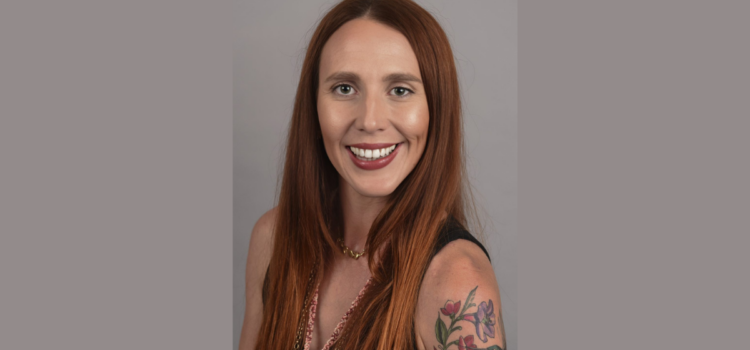
Ever since she was a little girl, she knew she wanted to teach. Born and raised in Bakersfield, California, Katy Hanson originally had a goal of teaching children. However, when she got to college she felt drawn to a religious studies class and found that she wanted to know and learn more.
Hanson had always been passionate about equality and believed she carried herself like a feminist before she knew what a feminist was. In time, Hanson realized that she wanted to combine her passion for teaching and her interests in gender studies and women’s studies, and has been a professor at CSUB for almost seven years.
Living in a more conservative city, Hanson experienced many mixed opinions regarding the subjects she taught at CSUB. There seemed to be mistrust in academia from her peers and doubt in her cultural competence as someone who didn’t belong to the religions she was teaching in.
“When you teach subjects such as gender, sexuality, and religion people can tend to be reactive. However, I try to create an environment in the classroom where everyone feels welcome. People are going to come from a lot of different backgrounds,” Hanson stated. “There are kids coming out of their parent’s homes, sometimes still living at home, and people are still figuring out who they are. It’s important to be cognizant of that and have an attitude in the classroom of respecting one another.”
Hanson encourages people to share their opinions in her courses and have an open dialogue while remaining respectful of people’s pronouns, and sexuality and prohibiting others from making any racist or harmful remarks in the classroom.
Hanson’s Women’s Religion and Sexuality course is full of information about a lot of different religious traditions through the lens of only women authors, this is done intentionally.
“If you’re reading theology or philosophy religion, it’s by a woman within that tradition, research being done, it’s by a woman within their discipline doing research,” Hanson revealed.
CSUB’s student catalog describes the course RS 3368 Women, Religion, and Sexuality as a critical examination of the various ways major religious traditions and Western and Asian representation legislate women and sexuality in their literature and institutions.
“Something that is cool about taking religious studies classes is that if you have a religion you identify with you can learn more about your own religious traditions, we don’t always know everything about the history of our own traditions or someone else’s outlook on the tradition itself.. or why we perform a ritual,” said Hanson.
Hanson states she’s had students who have said the class helped her connect on a deeper level with their religion and their religious rituals and practices. Her goal is never to push anyone further away from their relationship with religion but to help students be informed about the beliefs they adhere to and the practices they utilize.
Teaching these courses has even helped Hanson from viewing the practices that are more traditional through a patriarchal lens to a lens of empathy and choice and she is always learning something new.
“Feminist identity is so diverse, you get the loudest voices, mainstream feminist voices… the way the feminist community has interacted with sex work is an example of this, mainstream feminism has always been very anti-sex work however, there are people who identify as feminists who aren’t anti-sex work,” stated Hanson.
She goes along to say, “Feminist identity is complicated but the key thing to always go back to is choice — and informed choice as well. If you’re not making choices based on fear or coercion or anything then that’s what it’s about. Regarding religious studies, I didn’t become religious until I started studying religion academically. For some students coming into the classroom, and learning that there are feminist Catholics is shocking, and for others, it’s not shocking at all, people are coming from different places.”
Hanson also teaches a Lived Religion course, which covers topics such as what women are doing in their daily routine, what their rituals look like, and what they are engaging in daily. Everyone who participates in her classes brings something different to the classroom.
“If we have a non-religious identity we bring that to the classroom. Something that’s interesting is that we all partake in rituals, there are so many commonalities across religions. Water is important across different traditions, it’s seen as cleansing,” Hanson said. “Prayer and meditation are other examples and I think there’s something to be said about it. Although the religious studies class can be intimidating for people who don’t know anything about religion, it’s not a class where you really need to know anything about religion before you take it. ”
Teaching these courses made her realize that these classes are spaces where you can learn more about yourself, and more about other people who you don’t know much about.
Katy Hanson teaches three gender and sexuality classes that are Lived Religion, Sexual Ethics, and Women’s Religion and Sexuality which are offered every semester at CSUB. During the next semester, she will be teaching Women, Religion and Sexuality, Gender and Sexuality, and Sexual Ethics.